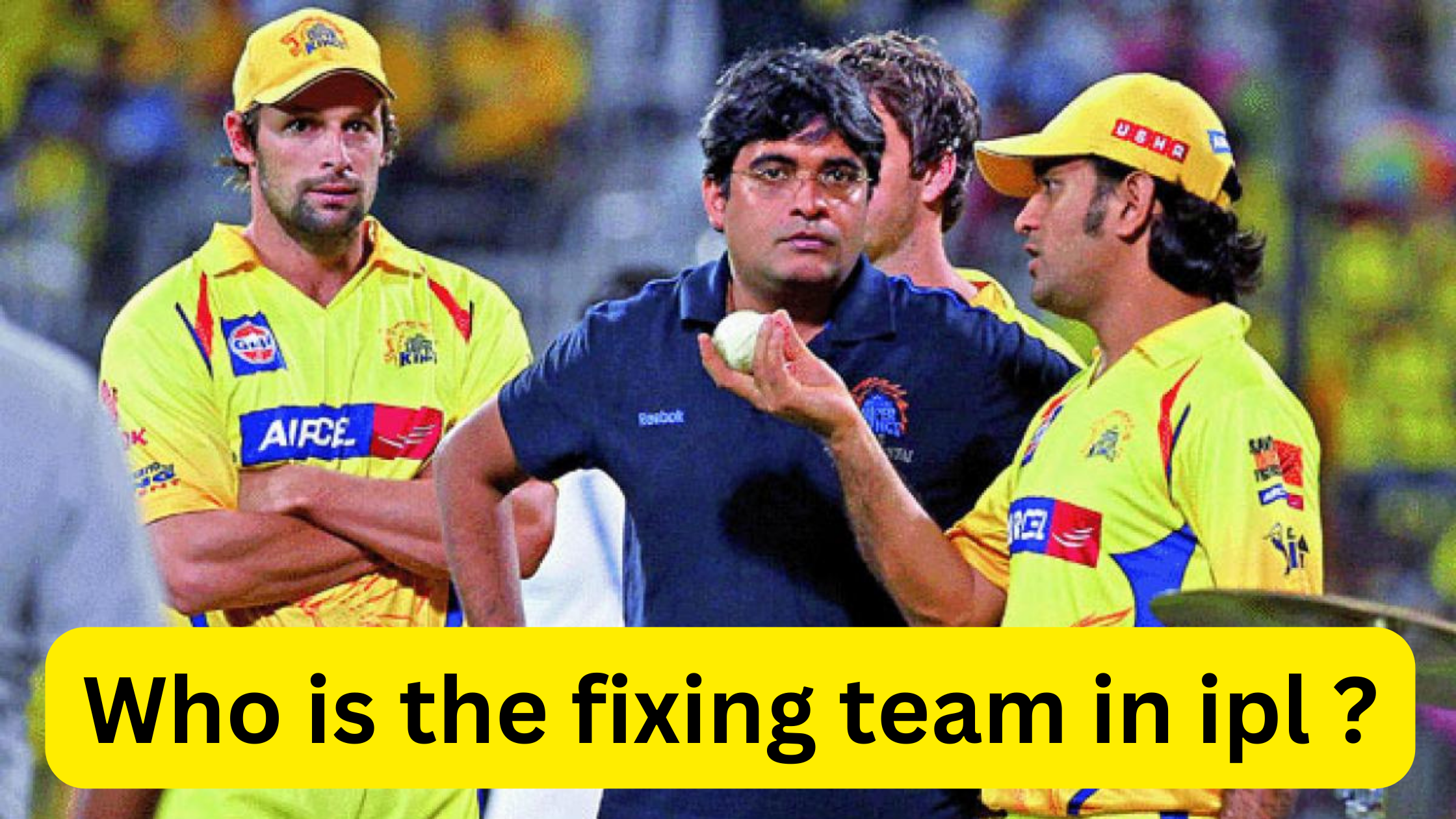No 1 Fixing Team in IPL: History of Match Fixing and Controversies
The Indian Premier League (IPL), a cricket extravaganza renowned for its glitz, glamour, and competitive spirit, has often found itself mired in controversies and allegations of match-fixing. The tournament, which has revolutionized cricket since its inception, has faced numerous allegations and scandals that have threatened its integrity. In this comprehensive analysis, we delve into the dark side of IPL, exploring the major fixing scandals, the teams involved, and the impact on the sport.
The 2013 Spot-Fixing Scandal: A Dark Chapter
One of the most notorious incidents in IPL history is the 2013 spot-fixing scandal. This scandal rocked the foundation of the league and raised serious questions about the credibility of the matches. The Delhi Police arrested three Rajasthan Royals players – Sreesanth, Ajit Chandila, and Ankeet Chavan – on charges of spot-fixing. This incident highlighted the vulnerability of the league to corrupt practices and cast a long shadow over the sport.
Key Figures and Arrests
- Sreesanth: A talented fast bowler whose career was derailed by allegations of spot-fixing.
- Ajit Chandila: An off-spinner who was caught in the web of corruption.
- Ankeet Chavan: A promising cricketer whose involvement in fixing ended his professional journey.
The scandal also led to the arrest of Gurunath Meiyappan, the Team Principal of Chennai Super Kings, along with diamond dealer Priyank Sepany and actor Vindu Dara Singh for their alleged involvement in betting activities.
Consequences and Bans
In the aftermath of the scandal, the RM Lodha Committee imposed a two-year suspension on the owners of Chennai Super Kings and Rajasthan Royals, India Cements, and Jaipur IPL. The Board of Control for Cricket in India (BCCI) took stringent actions, including a lifetime ban on Ajit Chandila. Although Sreesanth’s life ban was overturned by the Supreme Court in 2019, the damage to his career and reputation was irreversible.
The 2012 Sting Operation: Unmasking the Culprits
In 2012, a sting operation by India TV exposed the murky world of spot-fixing involving five uncapped players. This revelation sent shockwaves through the cricketing community and underscored the pervasive nature of corruption in the sport.
Players Implicated
- Abhinav Bali: Delhi-based cricketer accused of spot-fixing.
- TP Sudhindra: Deccan Chargers player caught in the sting.
- Mohnish Mishra: Pune Warriors India player who admitted to receiving payments in black money.
- Amit Yadav: Kings XI Punjab cricketer implicated in the scandal.
- Shalabh Srivastava: Another Deccan Chargers player involved in fixing activities.
Impact and Repercussions
The president of the IPL at the time, Rajiv Shukla, promptly banned the implicated players. Mohnish Mishra’s admission of receiving substantial amounts in black money further highlighted the financial malpractices within the league. Despite these revelations, many high-profile players remained untouched by allegations, leaving fans questioning the true extent of corruption.
2019 Betting Scandal: Involvement of International Syndicates
In 2019, the Central Bureau of Investigation (CBI) arrested seven individuals on suspicion of betting on rigged IPL matches. This scandal, based on information from Pakistan, indicated the involvement of international betting syndicates in IPL corruption.
Suspects and FIRs
The CBI filed two separate First Information Reports (FIRs) naming the suspects:
- Dileep Kumar from Delhi.
- Gurram Vasu and Gurram Satish from Hyderabad.
- Sajjan Singh, Prabhu Lal Meena, Ram Avtar, and Amit Kumar Sharma from Rajasthan.
These individuals were accused of running betting scams since 2010 and 2013, respectively, showcasing the long-standing nature of these illegal activities.
The Ongoing Battle Against Corruption
Despite numerous scandals and stringent actions by the BCCI and law enforcement agencies, match-fixing and betting scandals continue to plague the IPL. The league’s popularity and the high stakes involved make it a prime target for corrupt practices.
Steps Taken by BCCI
- Anti-Corruption Unit (ACU): The BCCI has strengthened its ACU to monitor and prevent corrupt activities within the league.
- Player Education: Regular workshops and seminars are conducted to educate players about the dangers and consequences of involvement in corruption.
- Strict Penalties: Harsh penalties and lifetime bans are imposed on individuals found guilty of corrupt practices.
Conclusion: Safeguarding the Spirit of Cricket
The Indian Premier League remains one of the most exciting and celebrated cricket tournaments globally. However, the recurring issues of match-fixing and betting scandals cast a dark shadow over its credibility. It is imperative for the BCCI and other relevant authorities to continue their efforts to uphold the integrity of the sport. Ensuring transparency, enforcing strict regulations, and educating players about the perils of corruption are crucial steps in safeguarding the spirit of cricket and maintaining the trust of millions of fans worldwide.
